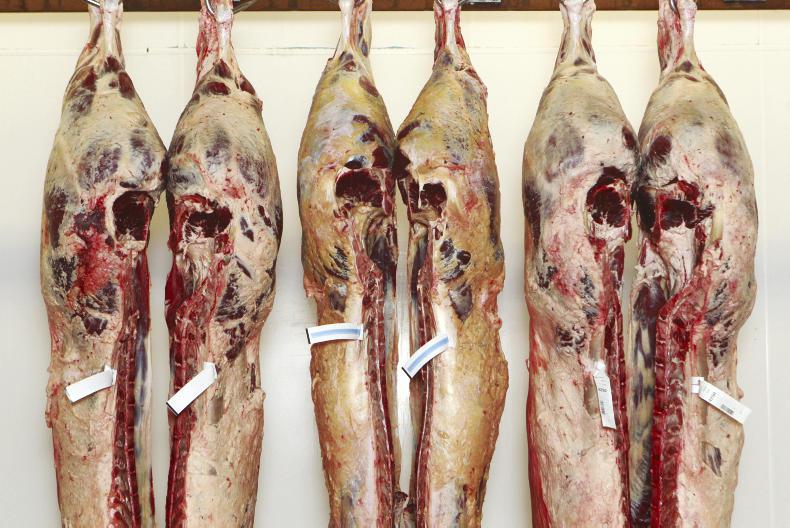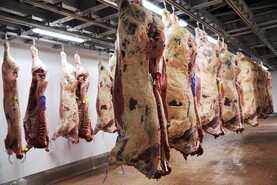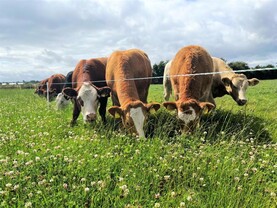There’s been a marked cooling off in factory demand over the last few days, with most factories revising quotes downwards on Friday’s calls with agents for next week’s kill.
Bullocks have dropped to €3.75/kg, with heifers trading at €3.75/kg to €3.80/kg.
Some factories have mentioned €3.70/kg, but it’s unlikely they will be successful in going this low and most of next week's cattle have been purchased at this stage.
Cow prices
Cow prices have also slipped, with P grading cows currently being quoted at €3.00/kg to €3.05/kg and O grading cows trading at €3.10/kg.
Factories have also moved to reduce Angus and Hereford bonuses, with many now back to 10c/kg breed bonuses.
Weight limits have also came back into negotiations, with some factories applying penalties this week to heavy carcases.
Some factories are choosing to reduce the killing days next week and avail of the Government's COVID-19 wage subsidy scheme.
Lower UK retail demand
Factories have pointed to lower retail demand in the UK as the reason for pulling prices.
Speaking to people in the meat trade, they say that the chilled product that was shifted across prior to Christmas in advance of a possible hard Brexit is now being used.
Irish beef factories, at next week's quotes, will purchase next week's cattle kill at €1m less than this week
This product would need to be used inside 60 to 70 days, so retailers have switched to use it rather than purchase fresh product.
Retail sales are also reported to have taken a dip in the last two weeks.
Retail sales had been rallying prior to Christmas, with steak and roast sales up 11% in UK retailers.
Industry sources are also blaming food service closures having an impact on Irish beef sales across Europe, as lockdowns are still in place in many of our key European markets.
Nothing has changed in this regard for the last few weeks, so questions are being asked as to the justification for the current price cuts.
No negative sentiment
On the other hand, the UK market is marching on, with no sign of any negative sentiment.
Sterling is stable at 88p:€1, which is a massive bonus for Irish exporters.
Speaking to a Scottish finisher on Friday, R4L bullocks are coming into €4.67/kg incl VAT. That means a 380kg Charolais bullock comes into €1,774/head.
It’s a similar story in Britain, with R4L bullocks this week trading at €4.55/kg incl VAT. A 380kg bullock comes into €1,729/head at the current British price.
NI prices
Northern Ireland prices have also shown no signs of faltering, with 380kg R4L bullocks currently making €4.58 incl VAT or €1,740/head.
Meanwhile, in Ireland, an R=3= quality assured in-spec bullock will be paid next week at €3.95/kg or a 380kg carcase at €1,501.
That’s a €273/head difference when compared with the Scottish price and a €227/head difference on the English price.
The AHDB is reporting this week that the British price is currently running 54c/kg ahead of the same week in 2020 and 41c/kg ahead of the five-year average price.
We are entering into the most expensive period to finish cattle
The latest price reduction comes as a real slap in the face to winter finishers, who have incurred huge costs getting animals to finish during February and March.
We are entering into the most expensive period to finish cattle and with rations gone up by €20/to in the last two months, it’s going to be another year of counting the losses for winter finishers and at current prices, questions have to be asked as to where to from here for winter finishers.
It's ironic that in a week where the Irish Goverment opened a €100m scheme for applications from factories, Irish beef factories, at next week's quotes, will purchase next week's cattle kill at €1m less than this week.






 This is a subscriber-only article
This is a subscriber-only article











SHARING OPTIONS: